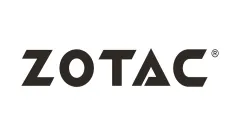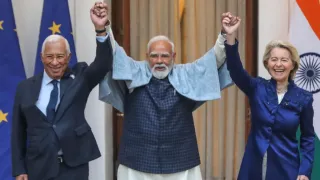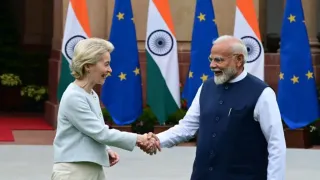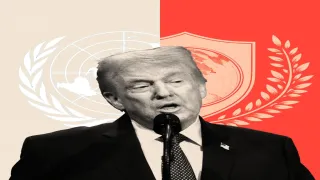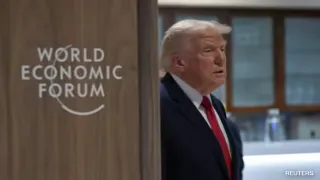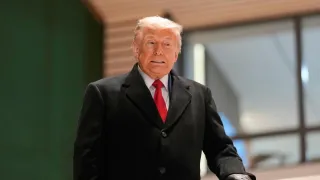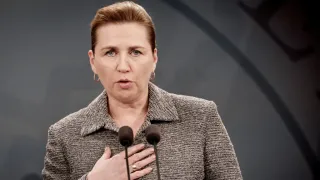In an extraordinary diplomatic flare-up, Ontario Premier Doug Ford has paused a high-profile ad campaign after U.S. President Donald Trump declared trade talks with Canada terminated — accusing the province of airing a “fake” Ronald Reagan clip that criticised tariffs. The ad, part of a $75-million Ontario campaign, used excerpts from Reagan’s 1987 remarks to argue against protectionist trade policies, but the footage’s selective editing set off an immediate and furious response from Washington.
Ford sought to defuse tensions with a message stressing the historic bond between the two countries, posting a full YouTube link to Reagan’s original address and writing, “Canada and the United States are friends, neighbours and allies. President Ronald Reagan knew that we are stronger together. God bless Canada and God bless the United States.” Within hours, however, he announced the ad would be paused — a tactical retreat that has only amplified questions about the use of historical footage in contemporary political campaigns.
The ad, its content and intended audience
The Ontario government’s ad repurposed clips from Ronald Reagan’s 1987 radio address to make a simple argument: tariffs harm workers and consumers. Aimed largely at U.S. audiences and conservative viewers, the commercial was designed to shape opinion in key American media markets and, by extension, influence trade negotiations that affect Ontario’s economy.
Officials and strategists behind the campaign said the goal was to spark a debate in the United States about the real costs of tariff policies and to underline how close economic ties benefit both sides of the border. Placing the spot during high-visibility programming was intended to maximise reach and pressure U.S. policymakers to reconsider protectionist moves.
Trump’s reaction and the abrupt halt to talks
President Trump reacted explosively, denouncing the ad as “fake” and claiming Canada had “cheated,” then announcing the suspension of all trade negotiations with Canada. His declaration transformed what had been media-driven political theatre into a matter of state-level consequence, immediately raising the stakes for cross-border commerce and diplomatic channels.
The White House framing turned the ad from a provincial messaging effort into a bilateral incident, with trade negotiators and political leaders suddenly confronting the fallout of a campaign that was never designed to be a flashpoint at this level. The suspension of talks creates uncertainty for industries on both sides that rely on predictable, negotiated terms for everything from autos to agriculture.
Ford’s response: defence, context and pause
Doug Ford defended the ad’s factual basis, asserting that the clip reflects Reagan’s long-standing opposition to tariffs. He framed the commercial as “not a nasty ad” but a factual intervention meant to remind Americans of conservative economic principles that favour free and fair trade. To underline transparency, Ford shared the full Reagan address and reiterated respect for U.S. sovereignty and partnership.
Yet Ford also moved quickly to pause the campaign, telling supporters the aim had been achieved — the message reached U.S. audiences at the highest levels — and instructing his team to halt further broadcasts. The pause was presented as a pragmatic step to allow room for diplomacy while signalling that the province would still press its case through other channels.
The Reagan Foundation and the authenticity debate
The Ronald Reagan Presidential Foundation and Institute weighed in, accusing the Ontario government of using “selective audio and video” that misrepresented Reagan’s remarks and announcing a review of potential legal options. That rebuke added institutional weight to claims that the ad mischaracterised the original speech, complicating Ford’s defence that the spot was simply “factual.”
Observers pointed out a crucial distinction: experts who examined the footage found the ad to be edited rather than entirely fabricated. Editing can change emphasis and context without inventing words — a nuance that matters legally and ethically, but less so in the fast, reactionary world of modern political media.
Political fallout at home and abroad
Domestically, opposition figures seized the moment to criticise both the Ford government’s judgment and the Carney administration’s handling of diplomacy. Conservative opponents mocked promises of swift trade wins, while Labour and left-leaning voices warned about the economic costs of any sustained rupture in talks with the United States.
Internationally, the incident has drawn attention to how provincial campaigns can unexpectedly interfere with national foreign policy. Ottawa faces the delicate task of repairing relations while preserving Canada’s negotiating position — a balancing act complicated by the ad’s viral impact and the speed of Washington’s response.
Trade implications and sectoral risks
Canada and the U.S. share deeply integrated supply chains; the abrupt suspension of negotiations threatens uncertainty for sectors such as automotive manufacturing, agriculture and timber. Businesses that rely on predictable tariff and regulatory frameworks now face a renewed risk premium, prompting urgent calls for back-channel diplomacy to restore stability.
Analysts warn that even a short disruption could ripple through investment decisions and export schedules, and that the political spectacle of the ad could harden negotiating positions on both sides — making compromise more difficult in future rounds of talks.
Legal questions and the ethics of historical footage
The dispute has reopened debates about the ethical use of archival material in political advertising. While editing public-domain speeches for persuasive effect is not illegal per se, institutions such as presidential libraries may challenge representations that materially distort historical record or imply endorsement where none exists.
Legal scrutiny by the Reagan Foundation could set precedents for how political campaigns may — or may not — use historical audio and video. A clear, enforceable standard on context and attribution would help future campaigns avoid similar diplomatic and reputational risks.
What happens next
With the ad paused, attention now turns to whether Ottawa can swiftly reopen trade channels with the U.S. Federal leaders will need to engage in quiet diplomacy to reassure Washington while reaffirming Canada’s interests. For his part, Ford has signalled willingness to step back, but the episode has already left scars that negotiators must address.
Longer term, the incident is likely to change how provincial and private actors approach foreign-facing political messaging. The lesson is stark: in an era of instantaneous international attention, domestic campaigns can have outsized geopolitical consequences — and political teams must weigh persuasive goals against the real risk of diplomatic fallout.
Also Read: PM Modi in Bihar: NDA Will Break All Records, Says Nitish











